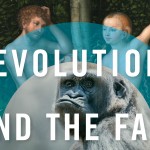
Fully half of this week’s most popular posts were related to René Girard (RIP).
I suspect this will continue as I do my best to introduce as many people as possible to his immediately applicable school of thinking.
Next week will include and interview with his biographer (and Milosz expert!) Cynthia Haven of the popular literary blog The Book Haven.
It is a little ambitious, but I would also like to devise a booklist of all the most important thinkers directly influenced by Girard’s mimetic theory. If by their fruits you shall know them, then I suspect you know Girard very well, even if you haven’t read him.
If you want a sneak peak at my upcoming post then I’ll tell you that there are three books where Girard develops the most important and interlocking components of his thinking: Deceit, Desire, and the Novel (desire), Violence and the Sacred (scapegoat), Things Hidden Since the Foundation of the World (theological implications of the other two concepts). I See Satan Fall Like Lightning is Girard’s most readable late synthesis of these three concepts.
What’s not weak, this week:
1. Lux Aeterna: RIP René Girard (December 25, 1923 – Nov 4, 2015)
2. We Have Never Been Postliberal Catholics?
3. René Girard: The Papacy Defeated the West
4. René Girard: Is Christianity a Myth?
5. The Intangible and Terrifying Spiritual Energy in Rocamadour
6. Girard: Islamic Extremism is Symmetrically Related to Western Wealth
7. Girard: Assisted Suicide and the Further Intensification of Problems
8. How is Aquinas so Premodern That He’s Postmodern?
9. Against the Defense of Christendom
10. What if the Worldwide Jesuit Conspiracy is REAL?
I’ll break with tradition slightly by posting a video from Almost Live! That Seattle institution is where all the “Lame List skits” I used in previous Weakened Edition posts appeared. This skit has important Girardian implications. The Stanford scholar argued in I See Satan Fall Like Lightning that since the victim has become the sole global absolute value mimetic rivalries are ironically bound to proliferate between competing victim groups.












